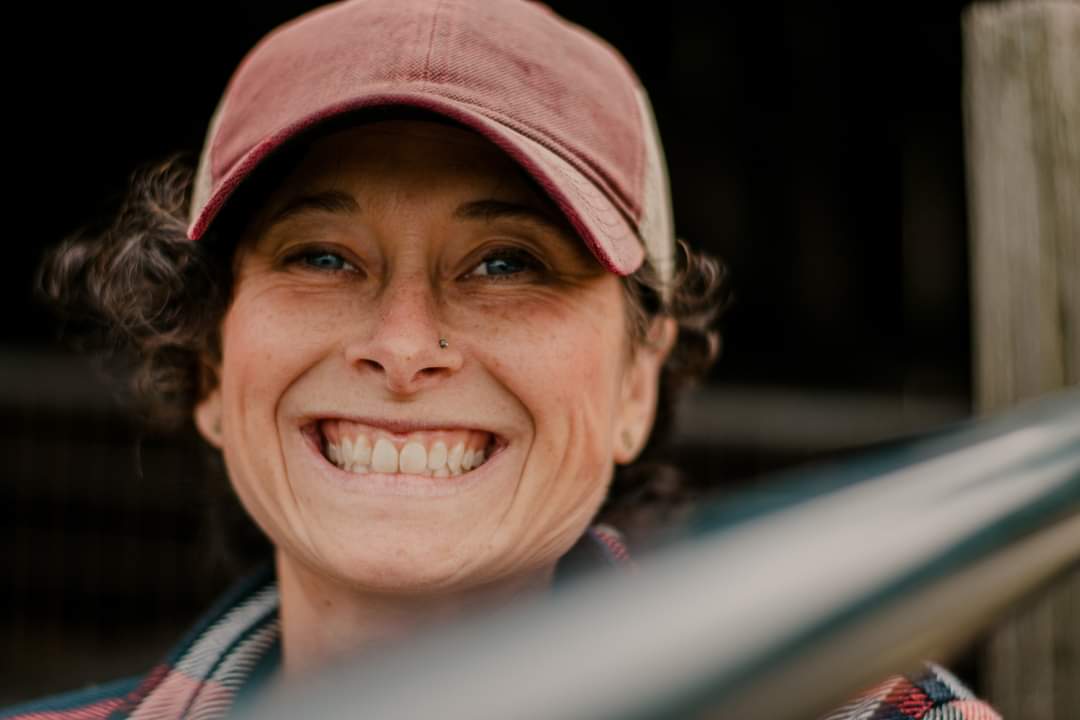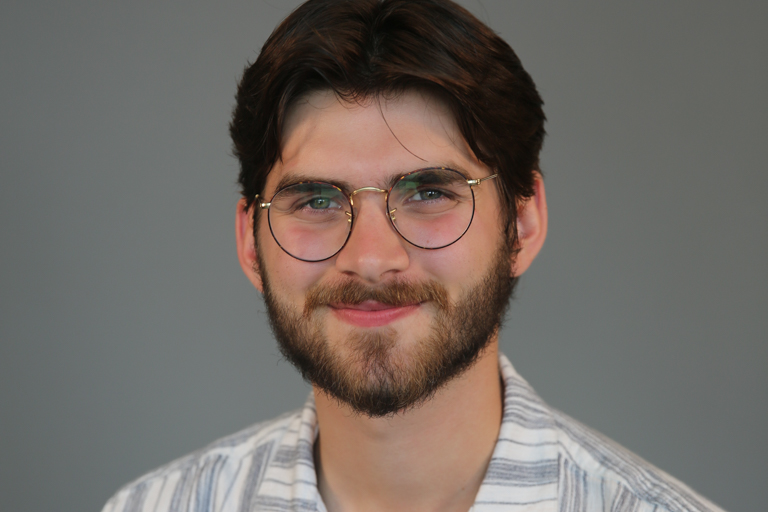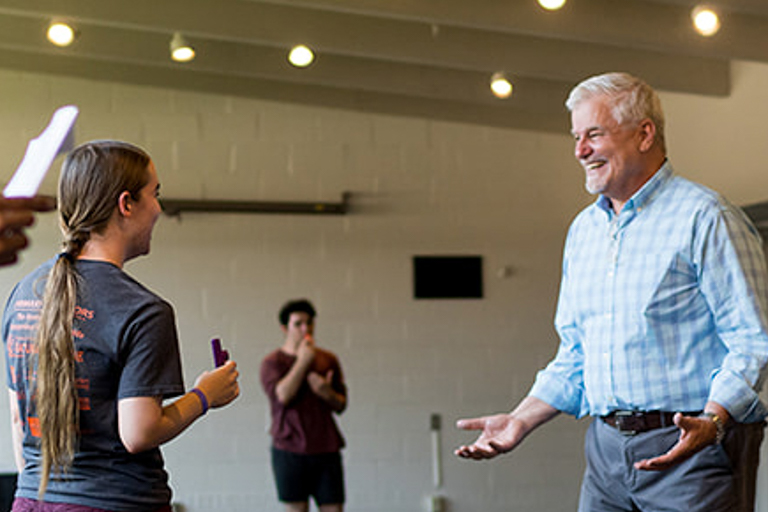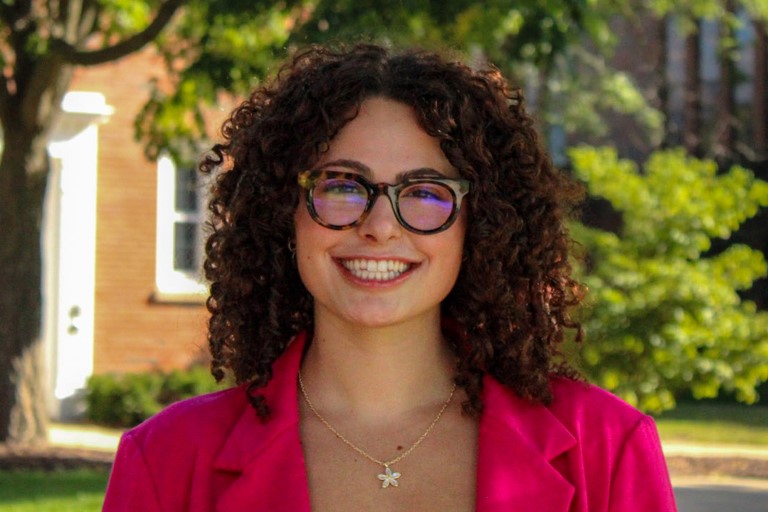Cows and Chickens and Sheep, Oh My!
Emily Shattuck M.A. ’22 takes an unconventional ministry route by combining her childhood love for farming and ranching with her passion for building up the new generations of Christian youth.
Words: Ciera Horton McElroy ’17

Emily Shattuck M.A. ’22 is a self-described suburbanite-turned-cowgirl.
“Growing up, I always had a chicken or two or some rabbits,” says Shattuck. “I was always begging my parents for the full-out ranch. But the Lord knew. It was as if he was saying, “I’ll give it to you later, don’t you worry.”
Shattuck, who recently earned her Wheaton master’s degree in outdoor and adventure leadership (OAL), is now the proud program director and co-founder of Dreamers’ Ranch in Windham, New Hampshire. Nestled on a dreamy 100-acre farm, the ranch is a Christian camp that partners with a local church and Youth Storm, a youth mentoring organization.
“Students come to learn agriculture and farming; that’s how they connect with their mentors,” Shattuck explained. “Our goals are to connect students with a Christian mentor to learn life skills through farming and to learn entrepreneurial principles using resources from the ranch, all in a faith-based context.”
Shattuck jokes that as a flex student, she would sometimes roll off the farm and into her online master’s classes after chasing down the cows. This cowgirl finished her Wheaton degree while operating the ranch, with a few weeks spent each year completing intensive coursework at HoneyRock, the Outdoor Center for Leadership Development of Wheaton College, located in Three Lakes, Wisconsin.
Her studies in the Wheaton College Graduate School allowed Shattuck to apply her training in outdoor leadership in real-time while she developed programs for the campers. “God knew I needed this instruction from an organizational standpoint,” said Shattuck. “Everything from becoming a director myself, needing to learn to lead teams—the details of administration, all the way up to running a whole organization. It was all there. And I had amazing supportive professors and leaders who were ready at the drop of a hat to support me and help direct me if I had questions or needed to follow up on things we’ve learned!”
The ranch is home to over 50 head of cattle, 300 laying hens, a flock of sheep, pigs, honey bees, and a 30-by-70-foot greenhouse. There is always work to be done on the farm: Shattuck and her team practice rotational grazing and regenerative farming, which is an agricultural method that seeks to nurture soil health.
This setting isn’t only practical but highly rehabilitative for at-risk youth.
“You learn a lot in biology class, but then you’re actually seeing it when you help a sheep birth a lamb or when you’re testing soil to measure its nitrogen levels to decide if we can grow food there,” says Shattuck.
Central to its ministry model is the sense of responsibility placed on participants, which is something Shattuck believes is crucial. The OAL studies program helped foster this sense of leadership and independence, as faculty members mentored Shattuck herself. “I took the components that I was learning from the OAL program and I was able to inform the development of the curriculum, with everything that I learned,” she says. “The program and the professors prepared me well for the position I am blessed to have today. For anyone considering the OAL M.A. degree program with Wheaton College, I could not recommend it more.”
As students work the farm, they are helping grow food, clean the chicken coops, care for animals, and provide eggs and meat to the local church and restaurants in the community.
Since its opening in 2017, Dreamers’ Ranch has been growing at a rapid pace. And the unique agricultural approach of the ranch has provided fertile ground for theological discussions with students.
“The Bible really comes alive to students who have very little context for the outdoors, for creation, and for farming,” said Shattuck. “There are so many biblical parallels that connect to agriculture and farming because that was the context it was written in. So as we have students working the lands, they’re not just learning life skills, but they’re actually developing a paradigm where they can understand Scripture in a deeper way.”
One student in particular illustrated the power of this ministry model. One young man who had attended Dreamers’ Camp was later recruited by a local gang and ended up serving time in jail. As he prepared to be released, he called the Dreamers’ Camp staff.
“He said, ‘All I want to do is be back at the ranch,’” recalled Shattuck. “‘Those memories kept me faithful and I want to do well.’ That was just a testament to us. We need to keep doing this.”




